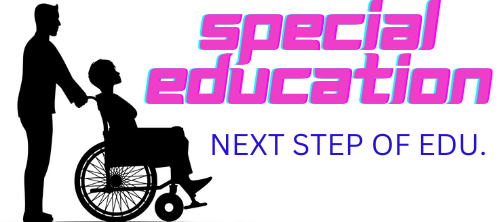A Brief History of Rehabilitation Council of India: Evolution and Milestones
The Rehabilitation Council of India (RCI) is a statutory body established to regulate and promote rehabilitation and education for persons with disabilities in India. Its history, evolution, and milestones reflect its significant contributions to the welfare of individuals with disabilities in the country.
Background and Establishment:
The genesis of the RCI can be traced back to the enactment of the Persons with Disabilities (Equal Opportunities, Protection of Rights, and Full Participation) Act, 1995. This act, also known as the PWD Act, aimed to protect the rights of persons with disabilities and enhance their participation in society. To implement the provisions of the PWD Act effectively, the Rehabilitation Council of India Act was enacted in 1992. The RCI Act came into effect on 22nd June 1993, giving the council a legal framework to regulate and standardize the training of professionals working in the field of rehabilitation and special education.
Mandate and Objectives:
The primary objectives of the RCI were to set standards for rehabilitation professionals, establish norms for training programs, maintain a Central Rehabilitation Register of qualified professionals, and promote research in the field of rehabilitation. The council was tasked with ensuring that rehabilitation services and education were of high quality and in line with international best practices.
Evolution of Scope:
The RCI initially focused on the rehabilitation of individuals with physical disabilities. However, recognizing the diverse needs of persons with disabilities, the council's scope expanded to include various disability categories like visual impairment, hearing impairment, intellectual disabilities, and multiple disabilities. This expansion allowed the RCI to cater to the comprehensive needs of individuals with different types of disabilities, promoting inclusivity and equity in its programs.
Recognition of Institutions and Courses:
One of the significant responsibilities of the RCI was to recognize institutions offering courses in rehabilitation and special education. To ensure quality education and training for professionals, institutions needed to meet the council's guidelines and criteria to receive recognition. Accredited institutions were required to follow the prescribed syllabus and offer practical training to students, enabling them to acquire the necessary skills and knowledge to work effectively with individuals with disabilities.
Accommodating New Professions:
As the field of rehabilitation and special education evolved, new professions emerged to address the specific needs of individuals with disabilities. The RCI took steps to recognize and accommodate these new professions within its purview. Rehabilitation psychologists, rehabilitation social workers, rehabilitation counselors, speech and language therapists, and other specialists were brought under the RCI's recognition to ensure their competence and professionalism.
Promotion of Inclusive Education:
The RCI played a crucial role in promoting inclusive education in India. It developed guidelines and training programs for teachers to effectively teach students with disabilities in mainstream schools. By sensitizing educators and providing them with the necessary tools and knowledge, the council aimed to create an inclusive learning environment where students with disabilities could learn alongside their non-disabled peers.
National and International Collaboration:
Recognizing the importance of collaboration and knowledge sharing, the RCI engaged in partnerships with national and international organizations, NGOs, and academic institutions. Collaborations facilitated the exchange of best practices, research findings, and innovative approaches to rehabilitation and special education. These partnerships also helped in implementing new initiatives and programs to address emerging challenges in the field.
Awareness and Advocacy:
The RCI undertook various awareness campaigns and advocacy initiatives to sensitize the public and stakeholders about the rights and needs of persons with disabilities. By raising awareness about disability-related issues and advocating for inclusive policies, the council aimed to create a more understanding and supportive society for individuals with disabilities.
Amendments and Revisions:
Over the years, the RCI Act underwent amendments to keep up with the changing needs and advancements in the field of rehabilitation and special education. The revisions aimed to address emerging challenges and improve the effectiveness of the council's activities.
Modernization and Digitalization:
As technology progressed, the RCI embraced digitalization for various processes such as registration, accreditation, and dissemination of information. The adoption of digital platforms made RCI's services more accessible and efficient for stakeholders, including professionals, institutions, and individuals with disabilities.
Impact and Milestones:
The establishment of the Rehabilitation Council of India marked a significant milestone in the advancement of disability rehabilitation and education in India. Some key milestones and achievements of the RCI include:
1. Development of Rehabilitation Professionals:
Through its recognition of institutions and courses, the RCI facilitated the development of a skilled and qualified workforce of rehabilitation professionals, including therapists, educators, and counselors, who played a vital role in improving the lives of persons with disabilities.
2. Enhanced Quality of Rehabilitation Services:
By setting standards and accrediting courses, the RCI ensured that rehabilitation services met the required quality benchmarks, leading to better outcomes for individuals with disabilities.
3. Promotion of Inclusive Practices:
The RCI's emphasis on inclusive education and collaboration with educational institutions contributed to the integration of students with disabilities into mainstream schools, fostering a more inclusive and supportive learning environment.
4. Research and Advocacy:
The RCI's focus on research and advocacy helped in identifying gaps in rehabilitation services, shaping policies, and promoting awareness about disability-related issues in society.
5. Support for NGOs and Organizations:
The RCI collaborated with NGOs and organizations working in the field of disability rehabilitation, providing support and guidance to enhance the effectiveness of their programs.
6. Empowering Persons with Disabilities:
By ensuring that rehabilitation professionals were trained and equipped to provide appropriate services, the RCI contributed to empowering persons with disabilities to lead independent and fulfilling lives.
Challenges and Future Directions:
Despite its many accomplishments, the RCI faced some challenges. These included the need to address regional disparities in the availability of quality rehabilitation services, ensuring greater participation of persons with disabilities in the decision-making process, and adapting to rapid advancements in technology and research. In the future, the RCI would need to continue collaborating with stakeholders, investing in research and innovation, and advocating for inclusive policies to overcome these challenges effectively.
Conclusion:
The Rehabilitation Council of India's journey has been one of growth, evolution, and progress. Through its efforts to regulate, standardize, and promote rehabilitation and special education, the council has made significant contributions to the lives of persons with disabilities in India. By continuously adapting to changing needs and embracing modernization, the RCI remains committed to its mission of empowering individuals with disabilities and creating a more inclusive society for all.


.png)

.jpg)
0 Comments
Have you any doubt, Tell me ;